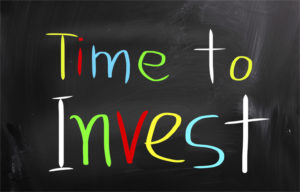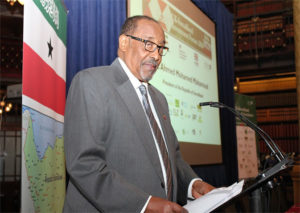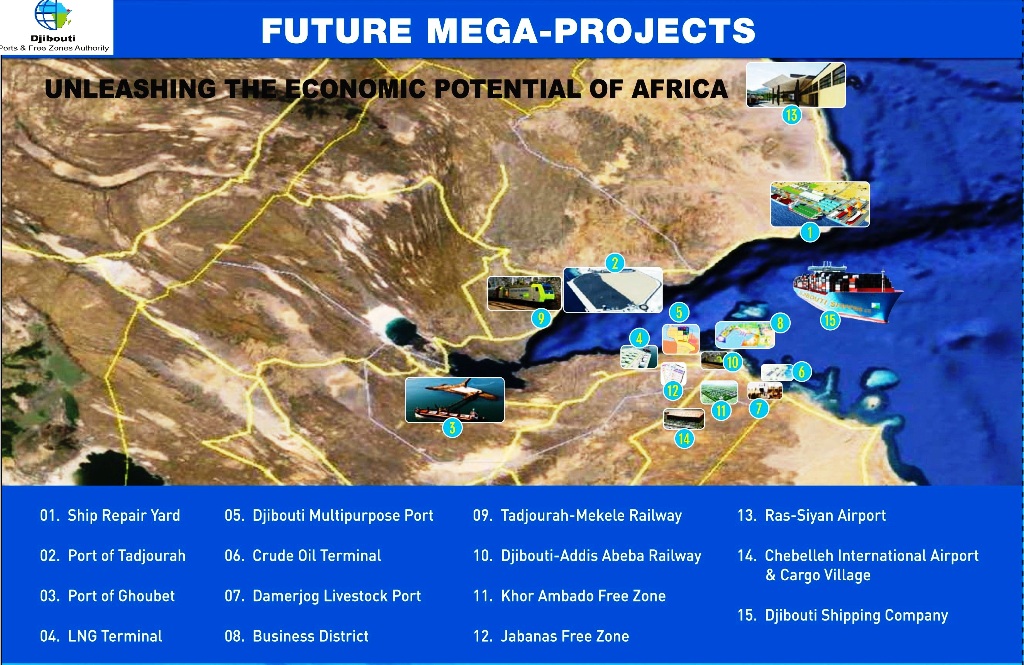Africa Investment

Your ‘Guul’ is our growth. Successful investment with Guul Group is delivered through a well designed strategy; that is executed flawlessly whilst leveraging management’s experience in other markets, adopting global best practices and most importantly collaborating with local partners in each industry. Trusted, progressive and collaborative strategies have facilitation and accelerated our business development process and critically, ensuring that Guul Group is sustainable. Guul will provide the opportunities for investors to access a number of income streams whilst protecting and seeking to enhance the region’s wealthy biodiversity.
Guul Group’s goals, through its family of firms and partners, are:
- Bringing and working with foreign investment and strategic alliance partners on projects in Somaliland and potentially other Horn of Africa markets that earn considerable/realistic profits for the investors through investments and projects that have a substantial potential return on investment (ROI);
- Establishing strong global relationships for Guul Group’s leadership with key European (initial focus on the United Kingdom), Asian and US investments, commercial, and NGO leaders to develop “quietly but proactively” the investment, commercial relationships within the US, UK, European, African, Arab investment groups; design/engineering/construction firms for infrastructure and large mixed-use developments, industry-specific multinationals (natural resource mining/extraction, agribusiness, logistics and environmental/alternative energy), as well as international development organisations that can partner with Guul Group to assist in the prosperous and sustainable development of Somaliland and the region by means of utilising Guul Group’s projects as key global centres for business, investment, as well as foreign development in Somaliland and potential other Horn of Africa markets;
- Establishing within five years Guul Group as the leading Somaliland private sector conduit and strategic partners for foreign private, public and multilateral firms and organisations in private and institutional investment, project development/management/finance, export development, logistics, infrastructure and education/technology transfer. There is an emphasis on trust, credibility, transparency and accountability.
- Working assiduously to ensure that Guul Group remains both culturally aware and inclusive. Pragmatic and principled in its dealings. Realistic and reflective, yet constantly striving to serve its stakeholders in a purposeful and professional manner.

The conversation about Africa is shifting from one of “deficits” and “gaps” to one about opportunities, prospects, ventures and creativity. That’s not news to companies that have paid close attention to the continent and invested there. The fast growing youth population, the urbanization expected to drive over 50% of Africans to cities by 2050, and Africa’s formalizing economy are all well known. These trends and other developments have driven a half century or more of growth in Africa, and will continue to do so.

It’s important to acknowledge that Africa tests an investor’s patience. Time horizons and return models that fit other markets don’t always work in there. Even the most experienced, sophisticated companies can be forced to recalibrate, as Nestlé did last year when it announced a 15% cut in its workforce across 21 African countries.
Deficits remain. What’s important is that investors now realize there is money to be made for those bold enough to help close the gaps. As that takes place, the promise of greater prosperity for Africans and African businesses will be realized. Why is it a good time to invest?
1. Africa needs ‘connectors’
Missing across much of sub-Saharan Africa are the roads, rails, ports, airports, power grids and IT backbone needed to lift African economies. This lack of infrastructure hinders the growth of imports, exports, and regional business.
Companies that can connect Africans and markets can prosper. Sub-Saharan Africa is plagued by power outages – almost 700 hours a year on average – sapping productivity, adding cost and leaving businesses captive to back-up and alternative power options. Massive investment is leading to major upgrades and expansion at African ports and airports, but much of Africa’s growth potential depends on in-country and intra-African road, rail and air connections.
Roads and rail lines are sparse, decrepit and over-burdened. A lack of aviation agreements has limited intra-African air connections. Africa’s lack of efficient storage and distribution infrastructure hinders businesses, entrepreneurs and farmers. Up to 50% of African fruit and vegetables spoil before reaching markets.
There’s a soft infrastructure deficit, as well. Outside of South Africa, the data and information critical to decision-making by businesses is missing or hard to obtain – credit and risk information, market data, consumption patterns, you name it. Lessons from Dubai and Singapore tell us that once an infrastructure race is on in a rapidly expanding market, being the first-mover is a significant advantage for investors.
2. African trade barriers are falling and intra-African trade holds enormous potential
With the 54-nation Continental Free Trade Area – Africa’s own mega-trade deal – even the smallest African economies could see a lift. If duties are lowered and incentives introduced, manufacturers could see benefit from setting up production and assembly operations in multiple African countries. That could lead to development in electronics, machinery, chemicals, textile production and processed foods.
As a first step, free trade between and within the African economic blocs would make a huge difference. Africa’s share of global trade – a meager 3% – can only increase if the continent’s commodity and consumption-led economies begin to produce a broad array of goods for home markets and export.
And an increase in local beneficiation in the commodities sector could be a driver of growth – processing local commodities (such as minerals, coffee, cotton) in country rather than exporting them in raw form. That said, it will continue to be a challenge for regions with poor power and infrastructure to compete as global manufacturers.
3. Customers are changing
With the growth of Africa’s middle class, we’re seeing development of new expectations. Educated, urban professionals are young, brand-aware and sophisticated in terms of their consumption. Retailers and consumer brands want to anticipate and drive buying preferences in fashion, home and lifestyle products, but they know they need international standard supply chains if they are to meet demand. The largest economic forces in Africa are small to medium enterprises, working to meet this new demand and competing with global brands.
4. Digital transformation
Africa leads the world in mobile adoption, which continues to offer the biggest cross-sectoral economic opportunities. Mobile payment networks, pioneered in East Africa, opened the wired, global economy to poor, unbanked city and rural dwellers. Companies such as Novartis are using mobile communications to manage their supply chain; Olam has used mobile to reach out to new African suppliers and farmers. These mobile initiatives have achieved huge successes.
To illustrate: In 2014, Ethiopia set up a telephone hotline allowing small farmers immediate access to advice from agronomists, with over 3 million calls done in the first six months of the pilot programme. Mobile is the area where Africa has pushed beyond the boundaries in the developed world, and African tech incubators are pushing to innovate. So what’s next?
5. Africa is diversifying
African economies are finally beginning to diversify beyond commodities, though this is still in the early stages. Africa is seeing a returning diaspora that recognizes the potential and opportunities in their own countries. This population supports local economic growth with their skills and talent, by acting as “first movers”, investing back in their communities.
At the same time, African countries are beginning to place bets on non-commodity areas where they can be competitive. And they are packaging themselves to appeal to a broader set of investors. Recognizing they can no longer count on growing investment from China, every country now has what are called “Investment Promotion Agencies”, which act as one-stop shops for investors, assisting with registration, taxes, and other steps to establish companies locally.
6. Africa can lead in sustainable development
In energy, technology, supply chain design and other areas, Africa has the ability to look at what works elsewhere then fashion its own answers. It can openly embrace new technology and ideas, with no historical imprint from which to break free. It can develop flexible fuel grids that generate power with a mix of abundant wind, solar, hydro and bio energy, alongside conventional fuels such as oil and gas, which are also abundant. Nowhere on Earth is there as much unused or poorly used arable land, so look for big agricultural breakthroughs and productivity gains in food production in Africa.
Business leaders are hungry for vibrant new markets and consumers know the reality: globalization means there are too few remaining frontiers. As the developed world matures, and becomes increasingly difficult to trade in as a result of factors from legislation to terrorism, opportunities for corporate growth are limited. There are too few places where entrepreneurs and businesses with ideas and an appetite for risk can bring value and find long-term growth if they are persistent, creative and determined. But there’s something else they know: Africa is still such a place.

Abundant investment opportunities (agriculture, energy, fisheries, hydrocarbons, minerals, livestock, salt, transport & logistics) adaptable labour force, a competitive daily minimum wage rate, strategic location and a private sector willing to collaborate with foreign partners.
An 850km long coast with lots of pristine beaches, beautiful coral reefs, unique archaeological sites, rare flora and fauna, stunning mountain ranges and a year-round sunny warm climate.
Somaliland has the following unique advantages for investments
- A stable political environment within the East African sub region, with established democratic institutions and systems to ensure good governance of the country
- Abundant, adaptable and easily trainable labor force
- A competitive daily minimum wage rate
- No restrictions on issuance of work and residence permits to investors and employees
- Good sea and air connections with Africa, Middle East
- Strategic location within East Africa provides access to a market with an estimated population of 110 million people
- Large potential for industrial base ranging from industries, agro-processing, plastics and metal work, clothing, textiles and wood processing
- A dynamic private sector willing to collaborate with foreign partners
- A committed and progressive government/private sector participation
- Truly hospitable people
Somalia has a substantial potential in natural resources: agriculture, livestock, fishing, telecommunications, energy, manufacturing, ICT, Construction and Tourism and Hospitality and hydrocarbons. This wealth in all the diverse sectors could attract many investors. Moreover, Somalia has a young population, a diaspora willing to invest in the country and, with the longest coastline in Africa, is strategically located to become a potential regional economic hub.
 Why is important to invest in Djibouti?
It is hard to ignore Djibouti’s strategic location and importance. Bordering the Gulf of Aden and the Red Sea and situated between Eritrea and Somalia, Djibouti is the route to the sea for African countries such as South Sudan and Ethiopia. Ethiopian imports and exports account for more than 70% of the port activity at Djibouti’s container terminal.
From the perspective of ‘the West,’ this is a strategic country in the middle of the unstable Horn of Africa. It is home to the only U.S. military base in Sub-Saharan Africa and the largest French foreign military base. The Japanese opened a base in the past few years to help in the fight against piracy on the sea. From an investor’s perspective, Djibouti is a young country that presents untapped opportunities. Here are 10 reasons to invest in Djibouti:
Why is important to invest in Djibouti?
It is hard to ignore Djibouti’s strategic location and importance. Bordering the Gulf of Aden and the Red Sea and situated between Eritrea and Somalia, Djibouti is the route to the sea for African countries such as South Sudan and Ethiopia. Ethiopian imports and exports account for more than 70% of the port activity at Djibouti’s container terminal.
From the perspective of ‘the West,’ this is a strategic country in the middle of the unstable Horn of Africa. It is home to the only U.S. military base in Sub-Saharan Africa and the largest French foreign military base. The Japanese opened a base in the past few years to help in the fight against piracy on the sea. From an investor’s perspective, Djibouti is a young country that presents untapped opportunities. Here are 10 reasons to invest in Djibouti:
- It is located on the 2nd shipping route of the world, where transit 60℅ of world traffic
- The country is strategically positioned in the region, to serve as a hub for landlocked countries.
- It enjoys political stability.
- Nationals and foreigners alike enjoy the same rights.
- Its currency is pegged to the US dollar and is freely convertible, with a weak inflation rate.
- It has a financial system, free of exchange control, allows totally free currency transfer.
- Its economy is development-oriented and in full swing (with major infrastructure projects).
- Its telecom system ranks among the best in Africa, with station of SEA ME WE and EIG sub-marine fiber cables.
- Investments operations in the country are eligible for funding and insurance coverage from regional and international financial institutions.
- Djibouti is a natural gateway to a market of over 400 million inhabitants.
Ethiopia has succeeded in becoming one of the world’s fastest growing economies. Over the 2008-18 period, Ethiopia has recorded an average real GDP growth rate of 9.9%. This broad-based high growth rate has been supported by structural reforms that have been introduced through industrial sector development.
Priority Sectors to watch in Ethiopia:
Automotive,
Power Infrastructure – The Grand Ethiopian Renaissance Dam is projected to be Africa’s largest hydropower plant
Agriculture – Agro-economic zones are expected to support agricultural growth through investments
Construction – Construction activities account for 71.4% of the industries sector
Kenya is ranked the 4th largest economy in Sub-Saharan Africa with a GDP of USD 60 billion. Kenya’s investment climate is the strongest in the EAC, with Foreign Director Investment (FDI) flowing in from emerging and developed markets and a high number of multinational companies with regional and continent-wide presence. Kenya is a member of trade arrangements and a beneficiary of trade promotion schemes that include Africa Growth and Opportunity Act (AGOA), World Trade Organization, and EAC-EU Trade Agreement. It is also a member of East Africa Community (EAC), Common Market for Eastern and Southern Africa (COMESA) & Southern Africa Development Cooperation (SADC) regional bloc that will soon be a Tripartite Free Trade Area (FTA) cooperation creating a potential market of over 600 million people.
